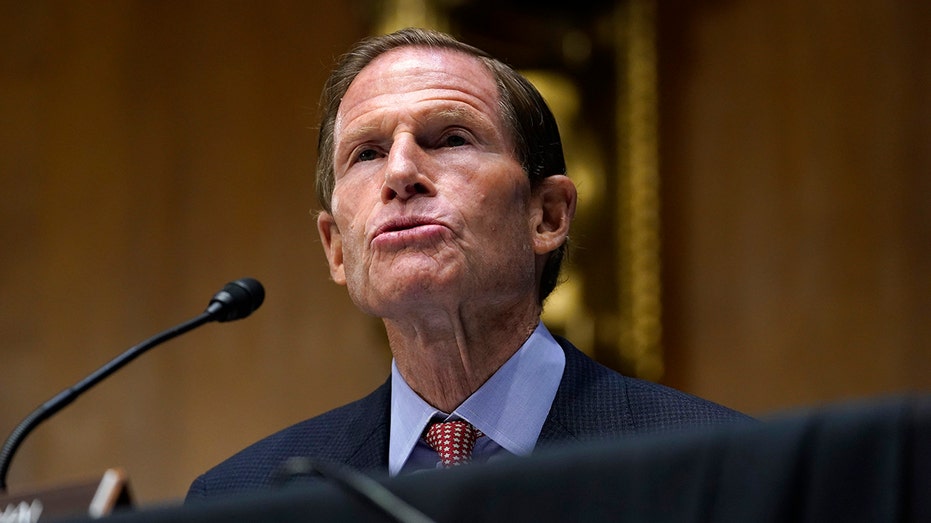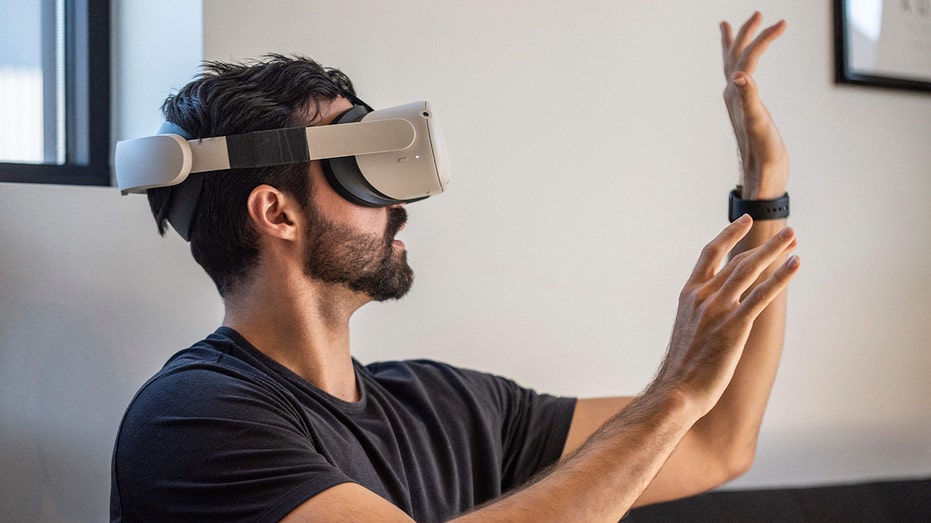Democratic Senators call on Meta to stop plan to release Metaverse app to teens
Lawmakers criticize Horizon Worlds, cite company’s past failure to protect children
Democrats 'woke capitalism' permeates every aspect of US economy: Sen. John Thune.
Senate Minority Whip John Thune, R-S.D., explains why the Senate rejected Biden's ESG investing plan, arguing the new rule could negatively impact the life savings of many Americans.
Meta Platforms Inc. Chief Executive Mark Zuckerberg should halt the company’s plan to release its fledgling Horizon Worlds metaverse app to teens ages 13 to 17, according to a letter to him sent Thursday from two U.S. senators.
"In light of your company’s record of failure to protect children and teens and a growing body of evidence pointing to threats to young users in the metaverse, we urge you to halt this plan immediately," the letter from Sens. Ed Markey (D., Mass.) and Richard Blumenthal (D., Conn.) wrote.
A spokesman for Meta, the parent company of Facebook, didn’t provide a response to the letter. He said that Meta in June had released supervision tools to users of the company’s Quest headsets that allow parents to approve, block and view the apps their teens use.

Photo Credits: Getty Images
| Ticker | Security | Last | Change | Change % |
|---|---|---|---|---|
| META | META PLATFORMS INC. | 661.46 | -8.75 | -1.31% |
ZUCKERBERG SAYS NEW META TEAM TO WORK ON 'AI PERSONAS,' OTHER FEATURES
Last month, The Wall Street Journal reported that Meta planned to open Horizon to teenagers as soon as sometime in March as part of the company’s new strategy to expand the app’s user base. Horizon is an app for the metaverse where users can build and visit virtual worlds with legless avatars.
"For Horizon to succeed we need to ensure that we serve this cohort first and foremost," Gabriel Aul, Meta’s vice president of Horizon, wrote in an internal company memo. A company spokesman said at the time that Meta’s Quest virtual-reality headsets were designed for people ages 13 and up and that the company wanted to offer teens who already spend time on the headset a great experience with age-appropriate protections in place.
Sens. Markey and Blumenthal said they are concerned about the plan to open Horizon because of Meta’s record with products designed for children and teenagers. The senators cited a flaw in Messenger Kids that allowed users between the ages of 6 and 12 to circumvent the app’s age restrictions and interact with strangers. The senators said that Meta has previously failed to stop ads for tobacco, alcohol and eating disorders from targeting teens.

Sen. Richard Blumenthal highlighted a number of concerns that have arisen regarding potential threats to teenagers in the metaverse. Sen. Richard Blumenthal, D-Conn., speaks during a Senate Judiciary Committee hearing on Capitol Hill in Washington, T (AP Photo/Susan Walsh, Pool)
Meta said the Messenger Kids flaw only affected a small number of group chats. The spokesman added that Meta has restricted the options that advertisers have to reach teens as well as the information the company uses to determine which ads to show them, a spokesman for the company said.
The two senators also cited the company’s internal research, which found that its Instagram service was toxic for some teen girls, according to a report from the Journal in 2021. Instagram has done extensive work around bullying, suicide and self-injury and eating disorders to help make the app a safe place for all users, the company said in response to the report at the time. The Meta spokesman said its research has shown that some teen girls have reported positive effects of using Instagram.
After backlash from lawmakers and others, Meta said it would suspend plans for a version of its Instagram app tailored to children.
"With a documented record of failure to protect children and teens, Meta has lost parents’, pediatricians’, policymakers’, and the public’s trust," the letter says.
META TO BUY VR STARTUP WITHIN AFTER FAVORABLE COURT RULING

Sen. Ed Markey expressed concern about the plan to open Horizon Worlds because of Meta’s record with products designed for children and teenagers. Senator Ed Markey, a Democrat from Massachusetts, speaks during a news conference. (M. Scott Brauer/Bloomberg via Getty Images. / Getty Images)
Sens. Markey and Blumenthal also highlighted a number of concerns that have arisen regarding the potential threats to teenagers in the metaverse. This includes the collection of data on face and eye movement, physiological damage such as nausea and eyestrain, and exposure to abusive behavior such as bullying, threats of violence and sexual content. The senators cited research from the Center for Countering Digital Hate and Common Sense Media.
"Meta can’t protect the young people on its platforms now, so Mark Zuckerberg has no right to pull more teens into the wild west of the metaverse," Sen. Markey said in a statement to the Journal.
A spokesman for Meta said that eye-tracking and face-tracking capabilities are only available in the company’s Quest Pro $1,500 virtual-reality headset. The company has built a number of protections for that product that would prevent the kind of face and eye tracking "privacy invasion" that the letter suggests, the spokesman said.
The Meta spokesman pointed out that the Common Sense Media report cited by the senators says that research has "not yet found a clear link between VR usage and vision deterioration."

Meta says the company in June released supervision tools for its Quest headsets. Gavin Menichini, using the Oculus Quest 2 VR headset, gives a demonstration of the Immersed Virtual Reality program, which can be used for many applications, including v (Sergio Flores/AFP via Getty Images / Getty Images)
Meta has spent billions of dollars building out the metaverse, which is a vision for the internet in which users interact in virtual worlds. In 2022 alone, the company spent $15.9 billion on its Reality Labs division, the unit tasked with building the hardware and software necessary for the metaverse. Mr. Zuckerberg has said he views the metaverse as the next frontier for computing technology.
CLICK HERE TO GET THE FOX BUSINESS APP
Meta launched Horizon to the public in December 2021, and since then, the company has struggled to expand the metaverse app. The company has set 500,000 monthly active users as the Horizon unit’s goal for the first half of 2023, with one million as the goal for the full year, according to the internal company memo. Horizon’s monthly active-user figure stood at just above 200,000 as of January.
Among its plans to expand Horizon, the company has tasked its Horizon team with launching a so-called 2-D, or two-dimensional, version of the metaverse that can run on mobile and desktops in the first half of 2023, according to the memo.




















